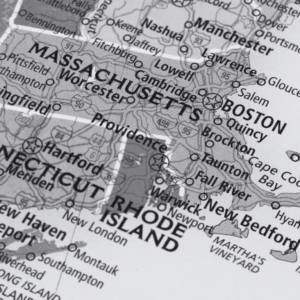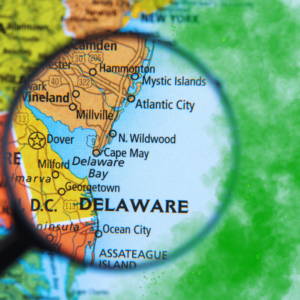Nebraska Approves Medical Cannabis After Years of Setbacks

Nebraska Voters Approve Medical Cannabis Legalization in Historic Vote
In a significant move for cannabis reform, Nebraska voters approved the legalization and regulation of medical cannabis on Tuesday by passing two major ballot initiatives. With a substantial majority voting in favor, these measures are set to establish a comprehensive medical cannabis program in the state, marking a pivotal moment after two previous failed attempts in 2020 and 2022.
What Happened
The Associated Press reported that with nearly 60% of the vote counted on Tuesday night, over 72.4% of Nebraska voters approved Initiative 437, enacting the Nebraska Medical Cannabis Protection Act. This measure permits qualified patients to legally use and possess medical cannabis to manage various health conditions. Additionally, Initiative 438 received approval from 68.5% of voters, establishing the Nebraska Medical Cannabis Regulation Act, which mandates the formation of a government board responsible for overseeing medical cannabis regulation.
These initiatives were spearheaded by Nebraskans for Medical Marijuana, a cannabis advocacy group led by campaign manager Crista Eggers. Despite previous setbacks in 2020 and 2022, the group persevered, gathering nearly 115,000 signatures to secure the measures on this year’s ballot—a number that surpassed the required 86,500 signatures. Nebraska’s Secretary of State, Bob Evnen, certified both initiatives for the ballot earlier this year.
Key Provisions of the Approved Measures
Nebraska Medical Cannabis Protection Act (Initiative 437): This act allows qualified patients to legally use and possess up to five ounces of medical cannabis. Patients must meet specific medical criteria to qualify, such as suffering from chronic pain, cancer, epilepsy, or other debilitating conditions. The aim is to alleviate symptoms and improve quality of life for those with approved health conditions.
Nebraska Medical Cannabis Regulation Act (Initiative 438): This act establishes the Nebraska Medical Cannabis Commission, a government entity responsible for overseeing the medical cannabis program. The commission will develop comprehensive regulations, covering licensing, quality control, product labeling, and compliance for producers and dispensaries within the state. This regulatory framework is designed to ensure that patients have access to safe and effective cannabis treatments.
Why It Matters
The passage of these measures positions Nebraska alongside other states that have embraced medical cannabis, representing a shift in public opinion toward cannabis as a legitimate treatment option for medical conditions. Here are several reasons why this milestone is significant:
Expanded Treatment Options for Patients: The Nebraska Medical Cannabis Protection Act provides a new avenue for patients who have exhausted other medical treatments or who may benefit from cannabis as part of their healthcare plan. Patients with qualifying conditions will soon be able to access a regulated source of cannabis for therapeutic use.
State Oversight and Regulation: The Nebraska Medical Cannabis Regulation Act sets up a robust oversight framework, with the Nebraska Medical Cannabis Commission tasked with establishing regulations for production, distribution, and patient access. By creating a formal regulatory body, Nebraska aims to ensure product quality and protect consumer safety within the new medical cannabis market.
Economic and Social Impact: With a regulated medical cannabis industry, Nebraska could see potential economic benefits, including job creation within the cultivation, processing, and retail sectors. Additionally, legalization efforts have been shown to alleviate some of the burdens on the criminal justice system by reducing prosecutions related to cannabis possession.
The Road to Legalization: Overcoming Challenges
This victory for medical cannabis advocates in Nebraska follows a long journey marked by legislative and legal challenges. In 2020, a similar proposal was invalidated by the state’s Supreme Court, and a 2022 attempt also failed. These setbacks motivated advocates to continue their efforts and to secure widespread public support.
Crista Eggers, the campaign manager of Nebraskans for Medical Marijuana, played a central role in mobilizing voters and gathering signatures. By actively engaging communities across the state, Eggers and her team were able to gather nearly 115,000 signatures, ensuring the measures met the threshold to appear on the ballot.
The campaign also gained traction due to growing public awareness of the potential therapeutic benefits of medical cannabis. Many Nebraskans voiced their support, particularly for those suffering from chronic health conditions who lacked effective treatment options. Public support, along with persistent advocacy, ultimately led to the successful passage of these initiatives.
What Happens Next
With both initiatives now passed, Nebraska’s Department of Health and Human Services will work alongside the newly formed Nebraska Medical Cannabis Commission to finalize the rules and establish the framework for the state’s medical cannabis program. Here’s what the immediate next steps will likely entail:
Creating the Regulatory Framework: The Nebraska Medical Cannabis Commission will begin drafting regulations to cover all aspects of the medical cannabis supply chain, including cultivation, processing, testing, and distribution. These rules will ensure that patients have access to safe, consistent products while maintaining oversight of licensed operators.
Issuing Licenses and Approvals: Once regulations are established, the commission will issue licenses to approved growers, processors, and dispensaries. These licenses will be contingent on meeting state-mandated safety and quality standards, including compliance with labeling and packaging requirements.
Patient Registration and Access: The Nebraska Department of Health and Human Services will develop a patient registry system, allowing eligible patients to receive medical cannabis cards for legal purchase and use. This system is expected to require physician recommendations to verify the qualifying health conditions of patients seeking cannabis treatments.
Broader Implications for Medical Cannabis in the Midwest
Nebraska’s decision to legalize medical cannabis adds to a growing trend in the Midwest, where more states are exploring or have already implemented medical cannabis programs. While neighboring states like South Dakota and Kansas continue to debate the issue, Nebraska’s decision may influence other states in the region to consider similar reforms.
As more states adopt medical cannabis programs, the possibility of federal reform also comes into sharper focus. Public acceptance of medical cannabis has increased significantly over the past decade, with a growing body of research supporting its benefits for a variety of health conditions. Nebraska’s decision to regulate medical cannabis may contribute to a broader shift toward nationwide acceptance.
Nebraska’s landmark vote to legalize and regulate medical cannabis is a victory for patients, advocates, and the broader cannabis reform movement. With the Nebraska Medical Cannabis Protection Act and the Nebraska Medical Cannabis Regulation Act in place, the state is set to develop a structured, regulated market that will make cannabis treatments accessible to patients with qualifying medical conditions.
As Nebraska moves forward with implementing these measures, advocates hope that this program will serve as a model for other states considering medical cannabis legislation. With these two new laws, Nebraska joins a growing number of states that recognize the potential health benefits of cannabis, providing relief to patients and marking a new chapter in the state’s approach to medical cannabis.











